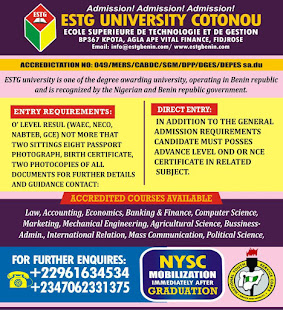Ahead of the September 19 governorship election in Edo State, there appears to be tension at the head quarters of the Independent National Electoral Commission (INEC) as national commissioners whose tenures are due to end in a few weeks from now are jostling to be in the good books of the reappointing authorities.

Credible sources in the commission said in order to achieve their aims of being reappointed, some of the national commissioners are “loosening the procedural bolts that may engender a free and fair election”.
Daily Independent gathered that some members of staff and management of INEC are said not to be favourably disposed to this new disabling engagement of election integrity which, according to them, may have a domino effect on the governorship election in Ondo State, scheduled for October 10.
According to one of our sources, the consent of national commissioners to this new regime of “loosening and weakening the procedures” is driven by the quest for reappointment in the next phase scheduled to come up before the end of the year.
He said there are fears that national commissioners whose tenures are due to end in two months may have allegedly traded the Edo and Ondo elections in return for guarantees of reappointment as patronage from politicians who can leverage their nominations and reappointments.
“Only the reappointment of Mrs. Amina Zakari may be feasible based on her known relationship with President Muhammadu Buhari even though she has already served two tenures.
“Almost all other commissioners are said to be vulnerable – apart from two from the North and one from the South East,” our source said.
When contacted, Rotimi Oyekanmi, Chief Press Secretary (CPS) to INEC Chairman, Prof. Mahmod Yakubu, said he wasn’t aware that some commissioners were jostling to be reappointed.
“I am not aware that some national commissioners are jostling to be reappointed,” he said.
Another major issue in the commission is the discovery by INEC’s operations officers that the detection of biometrics of voters during verification was declining.
Our source said the operations officers pushed for and, therefore, ensured that the commission agreed to complement the verification process by adding facial recognition and or iris scan at polling units, using a z-Pad tablet.
“At INEC’s meeting on Thursday, the z-Pad procedure was thrown out, meaning it would not be used in the Edo election next week”.
Another very important feature to enhance election integrity is the polling unit public results viewing portal demonstrated in Nasarawa bye-election three weeks ago.
“As INEC meets tomorrow, there are fears that this very useful tool, which made the Nasarawa election successful, may also be thrown out of the window.
“This, in spite of the fact that operational trends from INEC inside sources show that since the departure of Professor Attahiru Jega, the use of biometric Smart Card Readers, which helped to improve voter verification and, consequently, election integrity that brought the APC President Muhammadu Buhari-led government to power, has been on the decline”.
“Data from INEC showed that from just under 60% compliance level in 2015, the highest compliance results in this dispensation has been just about 20% verification, using Smart Card Readers.
“Yet, the commission, at its meeting last week Thursday, dropped it and may, at its meeting tomorrow, turn down other technical innovations, having dropped the idea of deploying the facial recognition or iris scan at polling units, using its z-Pad tablet.
“The implication of this is that anybody with a PVC can vote without the rigour of authentication, even if the Smart Card Reader is unable to match the bearer of the PVC with the data or biometrics, since the commission may not deploy the z-Pad for the Edo and Ondo elections.”
Speaking further, our source said another angle to the fears being expressed about the likelihood of not having a free and fair election is the move to alter some aspects of the manual for election to be handed over to ad hoc staff.
It was gathered that some provisions, like the possible non-deployment of the z-Pad, would be inserted in the document to give legal backing, as the election manual serves as a code of operations for ad hoc staff and they must stay within the letters of the document in their conduct of elections.
Another issue that is causing commotion is the list of Supervising Presiding Officers (SPOs).
The strategic importance of SPOs is their oversight of distribution of election materials, particularly ballot papers and election result sheets.
“Politicians have already infiltrated and are making unwholesome inputs into the names of those to be appointed as SPOs.
“There are suggestions from the commission that some top officials within are neck-deep in the on-going adulteration of personnel list of nominees to play critical roles in the election.
“The potential for a disruptive outcome is that critical and sensitive election materials may not be effectively distributed to cater for all areas within the voting jurisdiction as some potential SPOs are expected to do the bidding of politicians who will ensure that their names are included in the list as SPOs, thereby fuelling tension and heightening fears that the election is being channelled to have an expected end.”
Also responding to the claim that use of smart card readers have declined since the current INEC chairman assumed leadership of the commission, Oyekanmi said the report was not only misleading but also mischievous.
“The use of the smart card reader (SCR) is mandatory for all elections conducted by the Independent National Electoral Commission.
“In accordance with Section 49(2) of the Electoral Act 2010 (as amended), a person intending to vote shall be verified to be the same person on the register of voters by the use of the SCR.
“Therefore, the allegation that the compliance under the current commission is lower than the previous one is misleading and mischievous.
“To be sure, the INEC regulations and guidelines for the conduct of elections made provisions for certain situations that might arise on election day.
“For instance, where a voter’s Permanent Voter Card (PVC) is read but his/her fingerprint is not authenticated, the voter will be requested to thumbprint the appropriate box in the register of voters and continue with the voting process.
“Where the SCR reads the PVC but shows the details of another person rather than the details of the cardholder as printed on the PVC, the poll official shall first confirm that the details of the voter correspond with those on the PVC.
“In addition, the poll official shall also compare the voter’s details with what is contained in the register of voters. If the details are the same both ways, the voter shall be asked to give a telephone number and allowed to vote.
“The reason for collecting the phone number of the voter is to enable a recapturing of his/her biometrics at a later date.
“However, where the SCR fails to read the PVC of a voter, that voter will not be allowed to vote.
“He or she will be politely requested to leave the polling unit. Therefore, whichever way you look at it, the use of the SCR is central to the voting process on election day,” he said.





























No comments:
Post a Comment